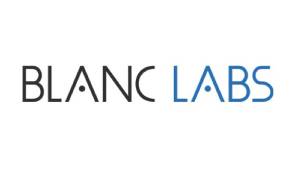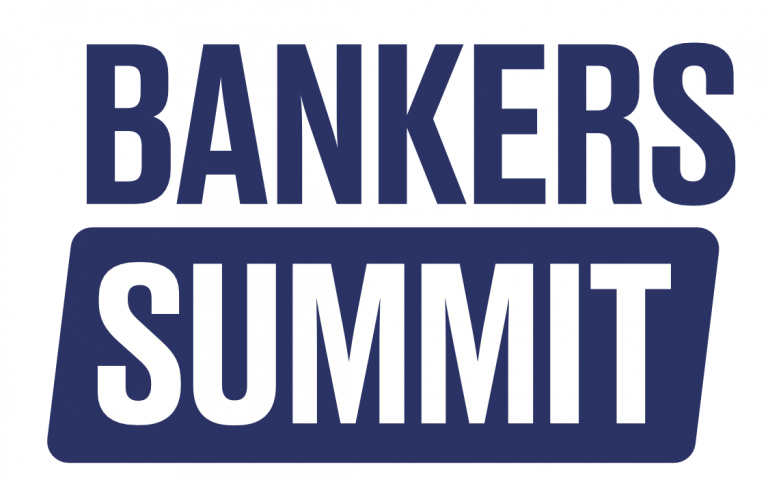How AI is Revolutionizing Lending: Practical Applications for Canadian Banks and FIs
Article Summary: This article explores the transformative potential of Artificial Intelligence (AI) and Generative AI in the lending sector, specifically focusing on the Canadian banking and financial institutions landscape. Highlighting Blanc Labs’ collaboration with clients in the mid-market and monoline lender ecosystem, it outlines practical applications and the significant business value of AI technologies. From personalization of customer interactions to intelligent document processing and risk profiling, AI is positioned as a key driver for enhancing revenue, improving customer experience, and optimizing operational efficiency. The post draws on studies and real-world examples to illustrate AI’s role in doubling cross-selling rates, increasing conversion rates, and boosting profitability. It also covers the development of AI-powered tools like knowledge assistants for mortgage lending operations, showcasing their impact on reducing search time and improving customer retention.
Generative AI and AI can unlock significant value for lenders of almost any scale and type. Access to data paired with the revolution in artificial intelligence is at an inflection point for innovation.
At Blanc Labs, we’ve engaged with multiple organizations to identify and pilot initial use cases of generative AI in the enterprise. Working directly with clients in the mid-market and monoline lender ecosystem, we have vectored in on use cases offering the greatest business value. Feasibility and business viability are major considerations for early adoption and our approaches have focused on using existing data/infrastructure to minimize the investment required and time-to-deliver positive business impact.
Based on our recent engagements, as well as details included in a study from McKinsey, the data suggests that Generative AI could boost the lending sector’s annual revenues by between 2.8% and 4.7%. Does your organization have a tech-led growth plan that will deliver those types of returns to your bottom line in a challenging growth environment? Sales and marketing, Customer Operations, Risk, Legal, and Software Development are functions that will gain the most value.
Personalization is the Playground of AI
Personalization of customer interactions is one of the AI use cases with significant business value. A study from BCG suggests AI and Personalization for lending, banking, and insurance can:
- Double the cross-selling rate.
- Increase lead to sale conversion by a factor of three or even five.
- Add 4 percentage points to profitability—at a minimum.
- Reduce churn in the banking business by at least 10%, maybe even 30%.
Another study from BCG demonstrates that for every billion dollars in assets that an FI has under management, it can achieve as much as $3 million (0.3%) in revenue growth by personalizing customer interactions. Below are a selection of the use cases of AI and Generative AI that we believe are relatively low-hanging fruit in-terms of value creation amongst lenders and the broader financial services industry.
Customer Operations and Sales: there are many use cases of Generative AI and AI in customer operations and sales. Almost every lender and financial services company can gain significant business value from AI and Generative AI use cases in customer operations, including those that will enable sales. Examples include contact centres, AI assistants and AI co-pilots for customer support staff, staff knowledge assistants, staff training, sales conversion, cross-sell and upselling. At Blanc Labs, we have had first-hand experience deploying such use cases in our client organizations.
Practical Application: Knowledge Assistant for Lending and Mortgage Customer Operations
Challenge
A mortgage lending team of a North American bank was spending up to 25% of their time responding to new employees’ inquiries. This was due to the difficulty in locating the information they needed in their procedural documentation, which was several thousand pages long. This resulted in lost productivity and inconsistent customer experience.
Solution
To address this issue, Blanc Labs developed a Generative AI Knowledge Assistant that was trained on the bank’s extensive procedures. This tool provided immediate access to complex guidelines and prompt responses for customer interactions. The knowledge assistant responds to ordinary language prompts, instantly generate the accurate procedure for the customer service team to follow, and coach the customer service rep to address client needs within a single call.
Impact
The Generative AI knowledge assistant improved search time by 70%. Managers now have more time to address escalations, improve their coaching and training program, which has resulted in improved customer experience. It is also expected that the tool will improve customer retention.
Marketing and Sales: Personalization of marketing messages and sales interactions, tailored for each customer of the lender or bank, will improve customer lifetime value as well as new customer acquisition. Every lender and bank has some form of customer data, such as customer profiles and history, that will enable A/B testing and drive improvement in marketing and sales effectiveness.
Risk and Legal Document Processing: LLMs and AI provide powerful tools for document understanding, intelligent document processing, model documentation, scanning for missing documentation, and regulatory updates.
Practical Application: Intelligent Document Processing and Smart Data Extraction for Lenders
LLMs are revolutionizing the field of document processing, particularly in industries like financial services. Their advanced capabilities in comprehending, categorizing, and extracting information from various document types greatly enhance operational efficiency.
For the last few years, different technologies have surfaced, radically improving document processing. These have been quite effective for structured documents but have fallen short in managing unstructured data. Just a year ago, the processing and comprehension of unstructured documents at scale seemed an unconquerable challenge. Now, LLMs are not only meeting this challenge but are setting new benchmarks for what is possible in document intelligence.
According to Gartner, unstructured data currently represents an estimated 80 to 90 percent of all new enterprise data. LLMs go beyond reducing manual workload and errors, speeding up processing times, and enhancing overall accuracy. They unlock the vast potential of dormant data within enterprises, transforming this underutilized resource into actionable insights.
These AI-driven tools adapt and learn from data inputs, making them invaluable for handling complex, unstructured data. They are transforming traditional document processing methods, leading to more innovative and efficient practices.
Let’s examine a practical application in the context of a Canadian lender to understand the tangible benefits these technologies offer.
Challenge
In Canada’s competitive mortgage market, brokers, agents, and underwriters at a leading lending institution were confronting a significant bottleneck. They were spending upwards of 6 hours per application to meticulously review and compile bank statements. This crucial step was necessary to assess a client’s creditworthiness accurately but was inefficient and cumbersome, delaying decision-making and potentially impacting customer satisfaction.
Solution
To address this challenge, Blanc Labs designed and implemented an Intelligent Document Processing (IDP), along with robotic process automation while leveraging AI. This technology streamlined the extraction, classification and analysis of key financial data from bank statements. By automating these processes, it significantly reduced the time required for loan approvals, enabling a faster, more accurate evaluation of creditworthiness.
Impact
The introduction of this IDP solution is expected to increase the conversion rate for mortgage applications in the range of 1% to 3%. This advancement not only boosted the productivity of the lender’s staff but also markedly enhanced the client experience. Canadian borrowers benefited from quicker loan processing times and more responsive service, leading to increased satisfaction and trust in the lender.
For more detailed information and practical examples on the impact of LLMs in Document Processing, you can read further here.
Software engineering and Product R&D: Lending and banking is one of the industries that will gain even greater business value via generative AIs that lower costs and accelerate time to market in new product development and software engineering. The business value includes much greater efficiencies in software development, quality engineering (vs. traditional quality assurance), and legacy code conversion.
Mortgage Pricing: Pricing and Real-time Price Market Adaptation offer great business value, yet regulatory requirements make the technology expensive to deploy across all cases. Not all enterprises are mature enough in their cloud and data journeys to be able to deploy MLOps efficiently.
| Use Case | Business Value | Tech Feasibility | Enterprise Readiness |
| Customer Operations and Sales | High | High | High |
| Marketing and Sales | High | High | High |
| Risk and Legal Document Processing | High | High | High |
| Software Engineering and Product R&D | High | High | Medium |
| Mortgage Pricing | High | Medium | Low |
| Risk Profiling | High | Low | Low |
Risk Profiling: In lending, including mortgage lending, AI-driven risk profiling uses several specific variables to formulate a more accurate assessment of a borrower’s default risk. Layering in AI will add greater insights to understanding traditional variables such as Credit Score, Debt-to-Income Ratio, Loan-to-Value Ratio, Employment History, Educational Background, Historical Payment Behavior, and Property Valuation. AI can predict property appreciation or depreciation rates based on market trends and geography, influencing loan risk. However, effective AI-driven risk-profiling requires the right data infrastructure.
Building the Business Case
Typically, initial use cases selected by client organizations require an investment of between $30,000 to $100,000. By focusing on technology feasibility and business viability as we build the capability to adopt these powerful new tools, the outcomes have yielded an annual profitability gain of between $250,000 and $1,000,000. Use cases we started with are most often in Customer Operations or Intelligent Document Processing, with KPI’s oriented towards measuring positive impact to revenue and margin.
If you would like to explore the potential of AI and Generative AI for your organization, get in touch.
About the Author
Hamid Akbari is a serial entrepreneur and the founder and CEO of Blanc Labs, a trusted technology innovation partner with domain expertise in financial services industry. Hamid is a frequent global speaker on innovation, emerging technologies, digital platforms and ecosystems. Hamid is also the cofounder and board member for Velocia.io, a data-driven loyalty platform.
Join the conversation in-person and be apart of the ongoing innovation in lending:
On May 15th, 2024, discover how next-gen FIs are partnering with fintech to accelerate innovation. Join over 500 banks, credit unions and fintechs in our networking hall building partnerships. The expert panels will take a deep dive into Core Modernization, BaaS, Embedded, Sustainable Finance and much more. Register here.
References
McKinsey Article | August 25, 2023 https://www.mckinsey.com/featured-insights/mckinsey-explainers/whats-the-future-of-generative-ai-an-early-view-in-15-charts
BCG | Nov 2022 https://www.bcg.com/publications/2022/personalizing-bancassurance-with-artificial-intelligence
BCG |March 2019 https://www.bcg.com/publications/2019/what-does-personalization-banking-really-mean



